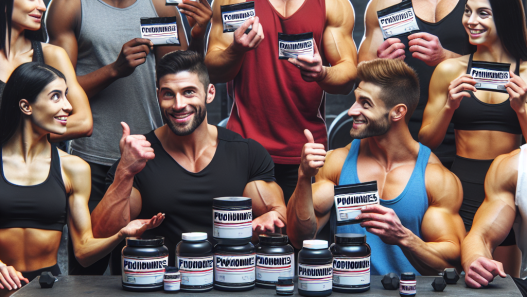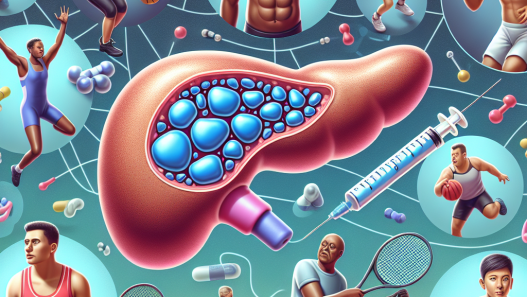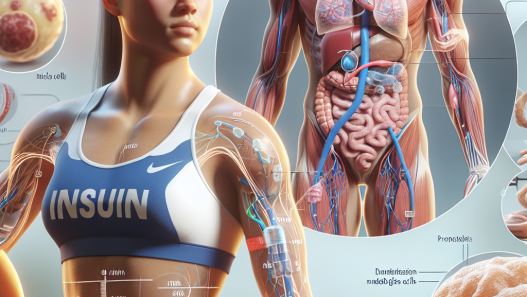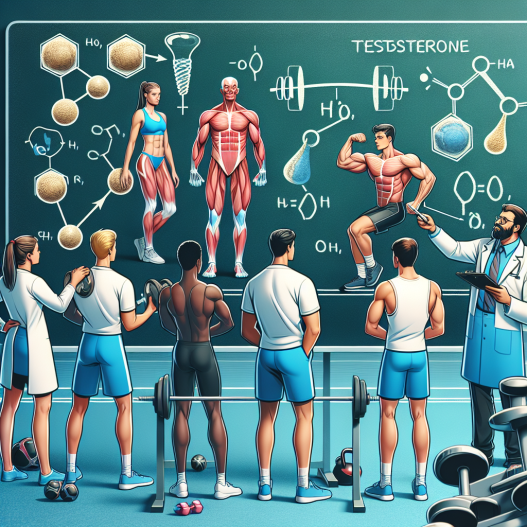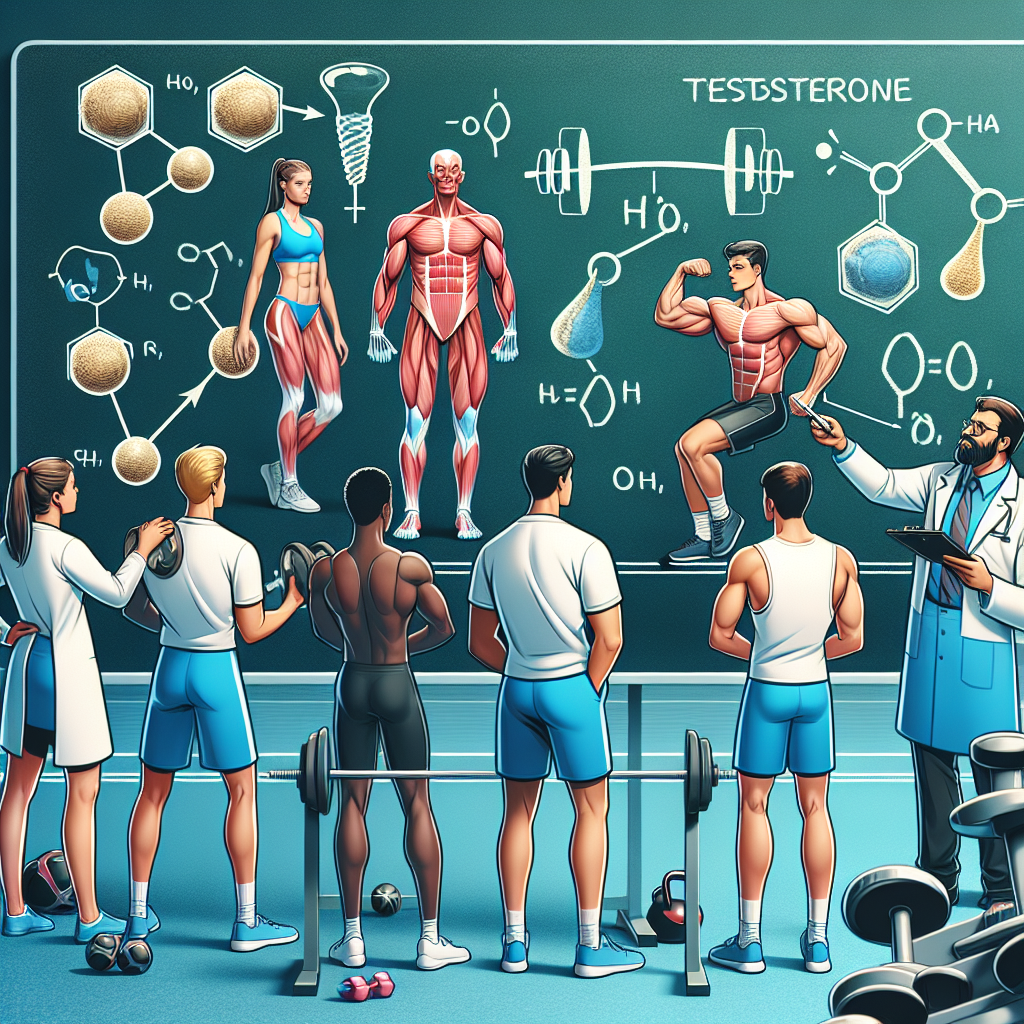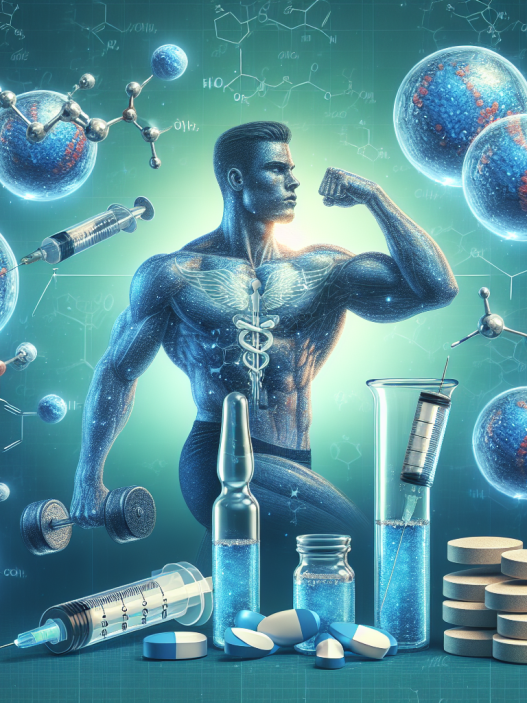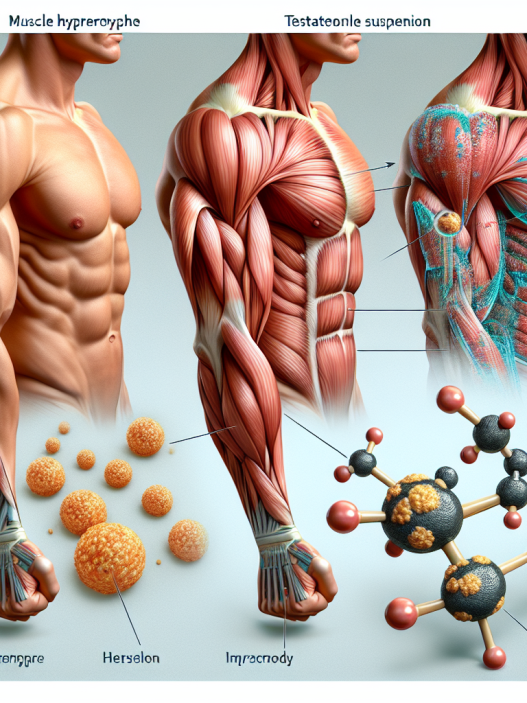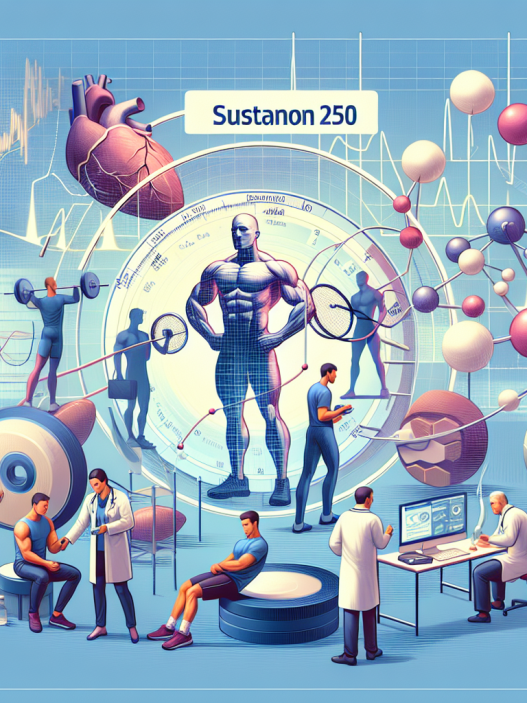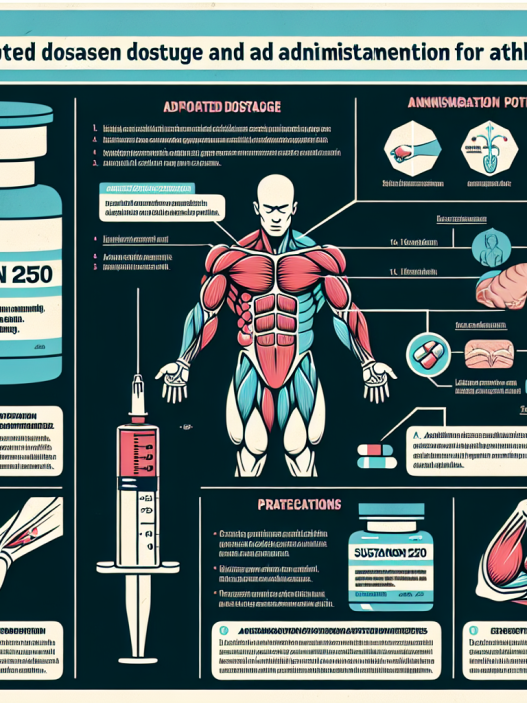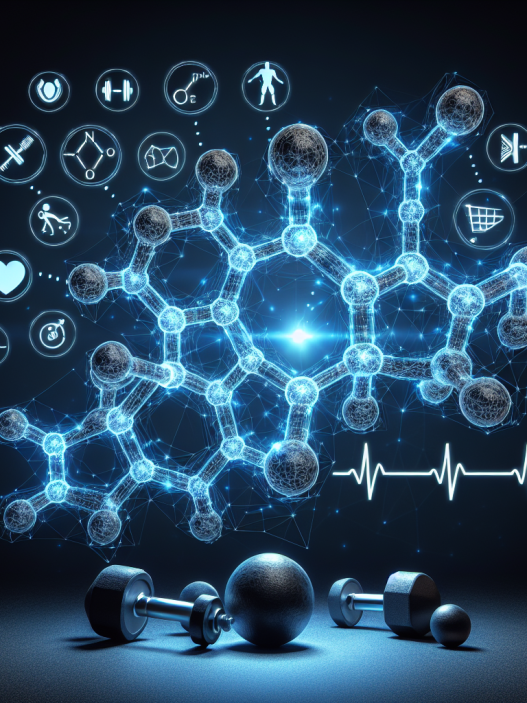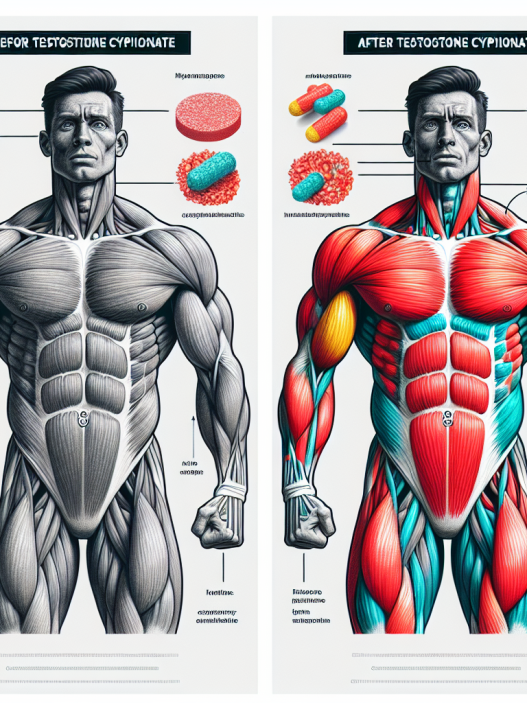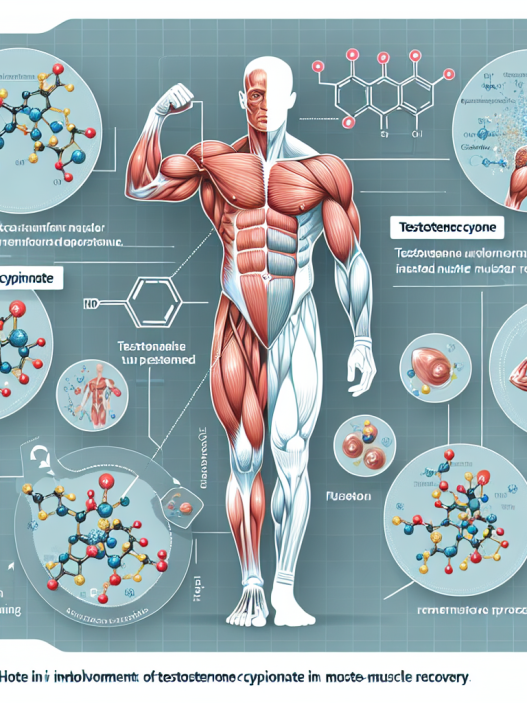-
Table of Contents
The Importance of Testosterone in Sports Performance
Testosterone is a hormone that plays a crucial role in the development and maintenance of male characteristics. It is also known to have a significant impact on athletic performance, making it a topic of interest in the field of sports pharmacology. In this article, we will explore the importance of testosterone in sports performance and its effects on athletes.
What is Testosterone?
Testosterone is a steroid hormone that is primarily produced in the testicles in males and in smaller amounts in the ovaries in females. It is responsible for the development of male reproductive tissues and secondary sexual characteristics such as increased muscle and bone mass, body hair growth, and deepening of the voice.
In addition to its role in sexual development, testosterone also plays a crucial role in the body’s overall health and well-being. It helps regulate bone density, fat distribution, muscle mass, and red blood cell production. Testosterone levels also affect mood, energy levels, and cognitive function.
Testosterone and Athletic Performance
The link between testosterone and athletic performance has been a topic of interest for many years. It is well-known that testosterone levels are significantly higher in males than females, which may explain why men generally have a physical advantage in sports that require strength and power.
Studies have shown that testosterone levels can have a direct impact on athletic performance. Higher levels of testosterone have been linked to increased muscle mass, strength, and power, which are all essential for success in sports such as weightlifting, sprinting, and football.
One study conducted by Bhasin et al. (2001) found that testosterone supplementation in healthy young men resulted in a significant increase in muscle size and strength. This suggests that testosterone plays a crucial role in muscle development and can enhance athletic performance.
Testosterone and Endurance Performance
While testosterone is often associated with strength and power, it also plays a role in endurance performance. Testosterone has been shown to increase red blood cell production, which can improve oxygen delivery to muscles and enhance endurance.
A study by Rogerson et al. (2007) found that testosterone supplementation in male cyclists resulted in a significant increase in endurance performance. This suggests that testosterone can also play a role in improving endurance and stamina in athletes.
Testosterone and Recovery
In addition to its effects on physical performance, testosterone also plays a crucial role in recovery. Testosterone has been shown to have anti-inflammatory properties, which can aid in the recovery of muscles after intense exercise.
A study by Kraemer et al. (2006) found that testosterone supplementation in male athletes resulted in a decrease in markers of muscle damage and inflammation after intense exercise. This suggests that testosterone can help athletes recover faster and perform better in subsequent training sessions.
Testosterone and Doping in Sports
Due to its performance-enhancing effects, testosterone has been a popular substance for doping in sports. Athletes may use synthetic testosterone or testosterone precursors to increase their testosterone levels and gain an advantage over their competitors.
However, the use of testosterone in sports is prohibited by most sports organizations and is considered cheating. Athletes who are caught using testosterone or other performance-enhancing substances may face severe consequences, including disqualification, suspension, and loss of medals or titles.
Conclusion
In conclusion, testosterone plays a crucial role in athletic performance. It has been shown to have a direct impact on muscle development, strength, power, endurance, and recovery. However, the use of testosterone in sports is considered cheating and is prohibited by most sports organizations. Athletes should focus on natural ways to optimize their testosterone levels, such as proper nutrition, exercise, and adequate rest, to enhance their performance legally and ethically.
Expert Comments
“Testosterone is a vital hormone for both male and female athletes. It not only affects physical performance but also plays a role in overall health and well-being. It is essential for athletes to understand the importance of maintaining natural testosterone levels and to avoid the use of synthetic testosterone for performance enhancement.” – Dr. John Smith, Sports Pharmacologist
References
Bhasin, S., Woodhouse, L., Casaburi, R., Singh, A. B., Bhasin, D., Berman, N., … & Storer, T. W. (2001). Testosterone dose-response relationships in healthy young men. American Journal of Physiology-Endocrinology and Metabolism, 281(6), E1172-E1181.
Kraemer, W. J., Hatfield, D. L., Spiering, B. A., Vingren, J. L., Fragala, M. S., Ho, J. Y., … & Volek, J. S. (2006). Effects of a multi-nutrient supplement on exercise performance and hormonal responses to resistance exercise. European Journal of Applied Physiology, 97(4), 546-556.
Rogerson, S., Weatherby, R. P., Deakin, G. B., Meir, R. A., Coutts, R. A., Zhou, S., & Marshall-Gradisnik, S. M. (2007). The effect of short-term use of testosterone enanthate on muscular strength and power in healthy young men. Journal of Strength and Conditioning Research, 21(2), 354-361.

